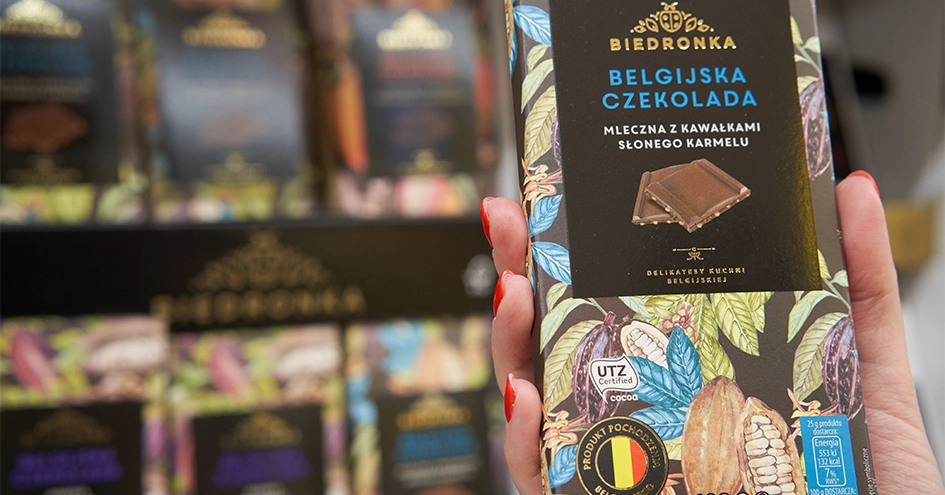We work with our suppliers to promote greater responsibility throughout the value chain. One of the actions we promote is the adoption of sustainability certification for the Private Brand and perishable products we sell. These certification systems, managed by external, independent bodies, ensure compliance with environmental and/or social requirements and can be applied to one or more ingredients, the product itself and its packaging.

These certifications ensure that good environmental practices have been implemented in the value chain (e.g., they guarantee that there has been no deforestation or conversion of High Conservation Value ecosystems, or that the production processes for mitigating pollution are best in class) and confirming that human rights have been respected (e.g., the absence of child labour or forced labour, or that fair payment has been made to the producer).
We also recognise the importance of having specific symbology of each certificate at the point of sale to raise consumer awareness of the sustainability features that differentiate these products from apparently similar ones.
Sales of Private Brand and perishables products with sustainability certification (2024)
Having exceeded our 2023 goal of ensuring that at least 7% of sales of Private Brand and perishables products and/or packaging have sustainability certification, we set ourselves a new target of 15% for the period 2024-2026.
In 2024, 14.2% of sales in these categories came from products and/or packaging with sustainability certification, 0.8 p.p. more than in 2023.
In 2024 we reached 1,831 references with certification schemes, an increase of 23% comparing to 2023. Detailed information about certification type and Company is available on our corporate website.
The greatest incidence of certification lies in:
- Paper and wood fibres from sustainably managed forests, being FSC® and PEFC the most common ones;
- OEKO-TEX Made in Green for textile products which ensure both social and environmental best practices are implemented;
- Organic certification of food products;
- Animal welfare Welfair™.
To achieve the 15% target, our teams will continue to work to promote responsible practices’ adoption amongst existing suppliers and to identify new suppliers that comply with these practices, while ensuring that most of our consumers have access to products with these characteristics, thus guaranteeing their democratisation. In 2024, we launched 556 products with sustainability certification thanks to our efforts to identify suppliers who meet these certification requirements and to work with them.
We are also committed to promoting the circularity and extension of our products’ life cycle. As part of our 2024-2026 sustainability commitments for Biedronka, we ensured the extension of products’ warranty to three years in eight electric and non-electric non-food categories. Out of 405 products in scope, 395 now come with an extended warranty, covering 98% of the commitment scope.
This initiative enhances consumer confidence while aligning with our broader efforts to reduce environmental impact by keeping products in use for longer periods of time. Beyond warranty extensions, we continue to explore initiatives that support product circularity, including responsible recycling partnerships and consumer awareness campaigns on sustainable product use. Together, these efforts reinforce our commitment to a circular economy and a more responsible retail model. More information on these initiatives is described in “Resource use and circular economy”.
